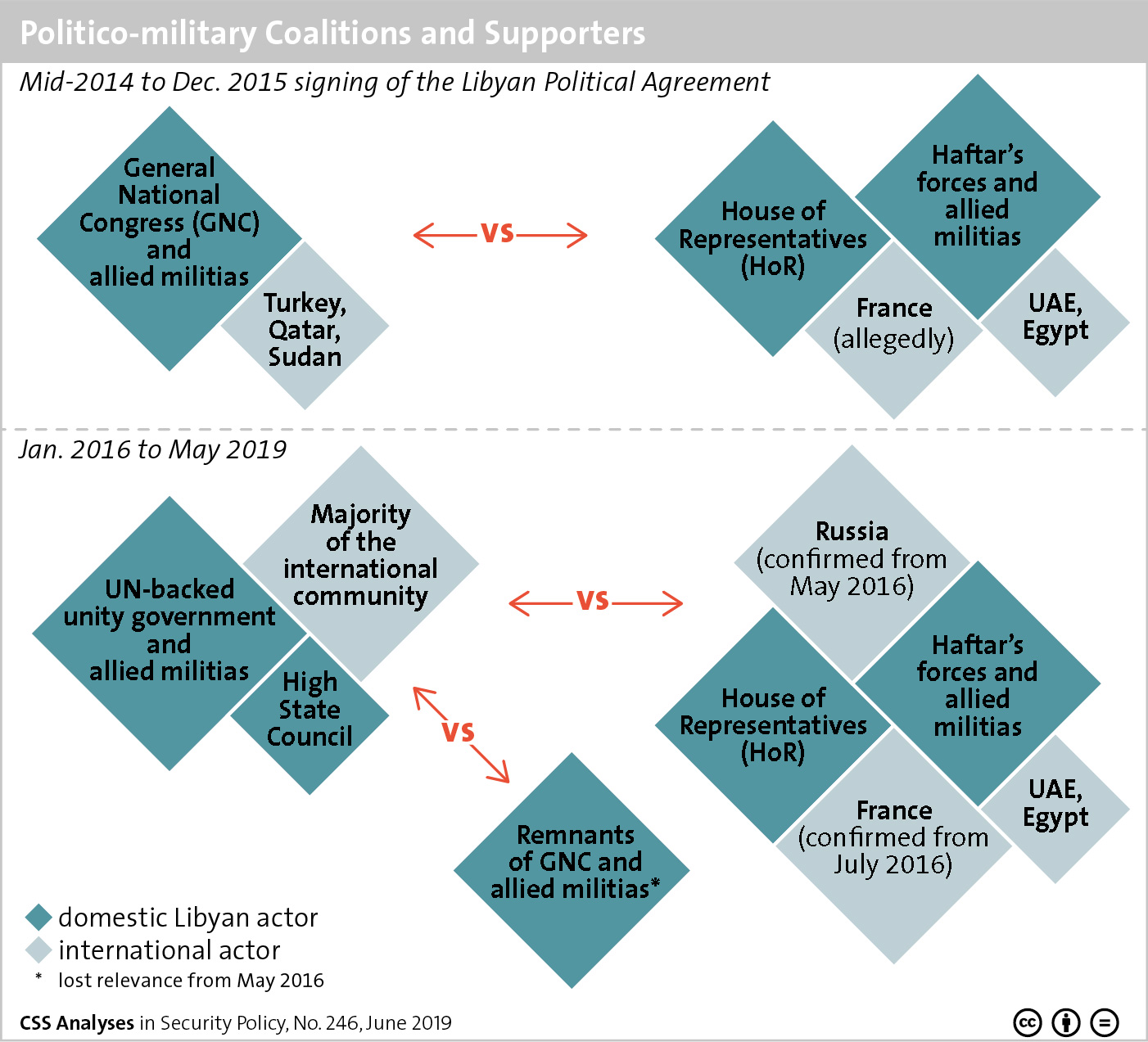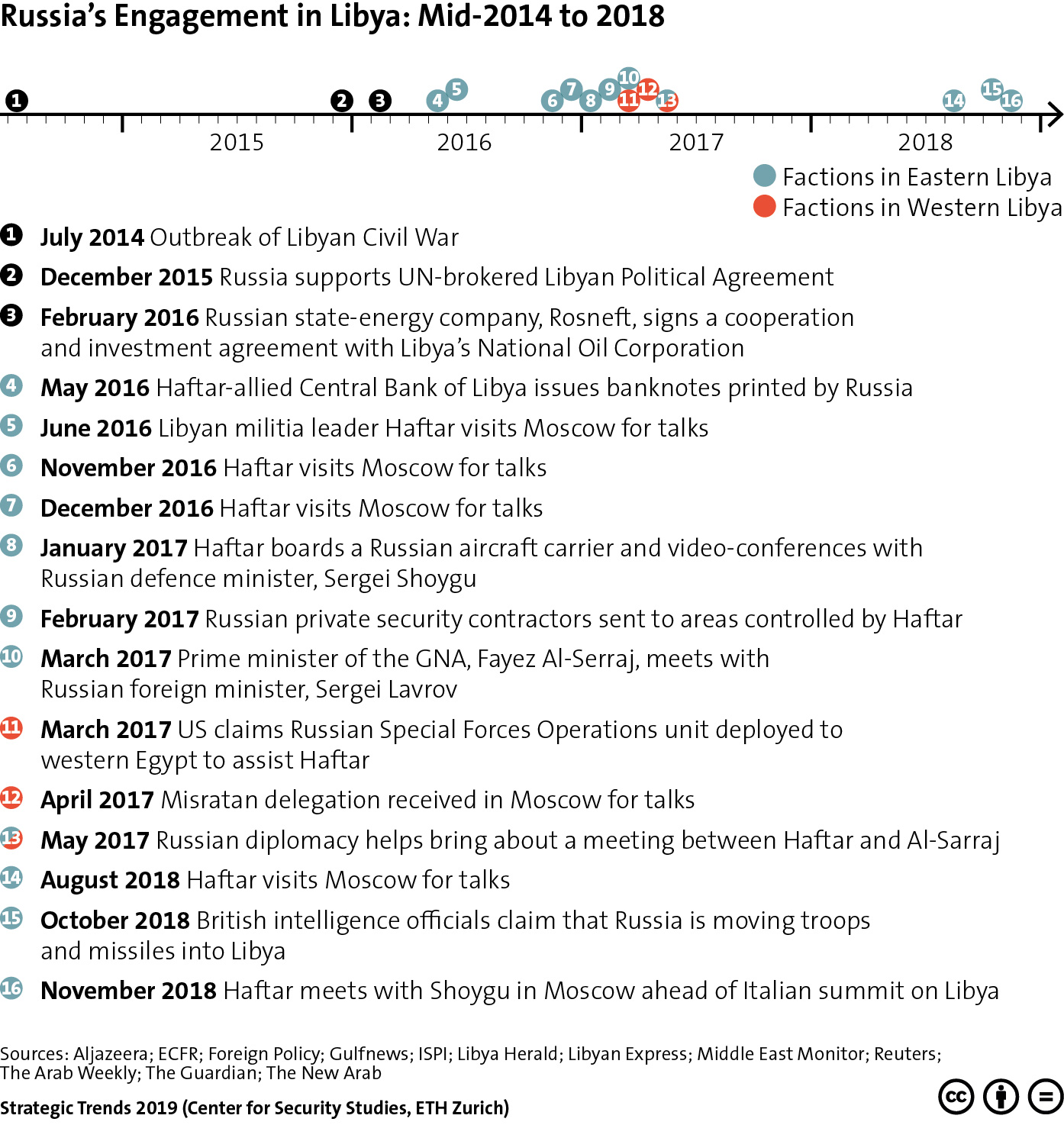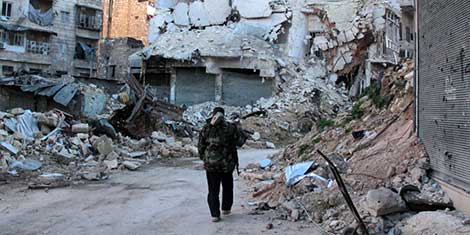
This week’s featured graphic maps the domestic coalitions in the Libyan conflict and their international supporters. For an insight into UN mediation in Libya, read Lisa Watanabe’s recent CSS Analyses in Security Policy here.

This week’s featured graphic maps the domestic coalitions in the Libyan conflict and their international supporters. For an insight into UN mediation in Libya, read Lisa Watanabe’s recent CSS Analyses in Security Policy here.

This article was originally published by Political Violence @ a Glance on 22 July 2019.
In 2018, the global measles outbreak claimed 109,000 lives and sickened 200,000 more across 126 countries. And the outbreak does not appear to be abating. Outbreaks in Europe and the US have been traced to Ukraine, where the spread of measles is generally attributed to an ongoing civil war. But the specific mechanisms connecting civil war and disease outbreak are unclear in this case.

This graphic highlights the uptick in Russia’s engagement in Libya from mid-2014 to the end of 2018. If you want to read more about Russia’s re-emergence as a power broker in the MENA region, see Lisa Watanabe’s chapter in Strategic Trends 2019 here.

This article was originally published by Political Violence @ a Glance on 5 September 2018.
In recent months, many observers of the still-smoldering civil war in Syria have concluded that Bashar al-Assad’s triumph, once unthinkable, now appears inevitable. How did the Syrian regime accomplish such a come-from-behind victory?
Most analysts emphasize how Assad benefited from extensive international support from Russia and Iran, as well as non-state militias like Hezbollah. They also credit Assad’s deft deployment of a divide-and-rule strategy, in which he sought modus vivendis with some opponents—ISIS and Kurdish rebel groups carving out autonomous spaces far from Damascus—while unleashing the full weight of his military strength on moderate Western-backed rebel factions. Yet the most important factor in Assad’s victory was neither his international support nor his wartime strategies; rather, Assad triumphed because Syria’s armed domestic opposition was hopelessly fragmented from the beginning to the closing stages of the conflict.

This article was originally published by the Polish Institute of International Affairs (PISM) on 4 September 2018.
The war in Syria has entered its final stage, one in which diplomacy will dominate military action. The most likely scenario for the end to this conflict—the Syrian government’s victory—creates a set of political risks to the EU: legitimisation of the undemocratic regime in Syria, engagement in highly politicized reconstruction projects that do not contribute to the improvement in living standards of Syrians, and granting Russia political gains without it also accepting adequate responsibility for the fate of Syrian returnees.